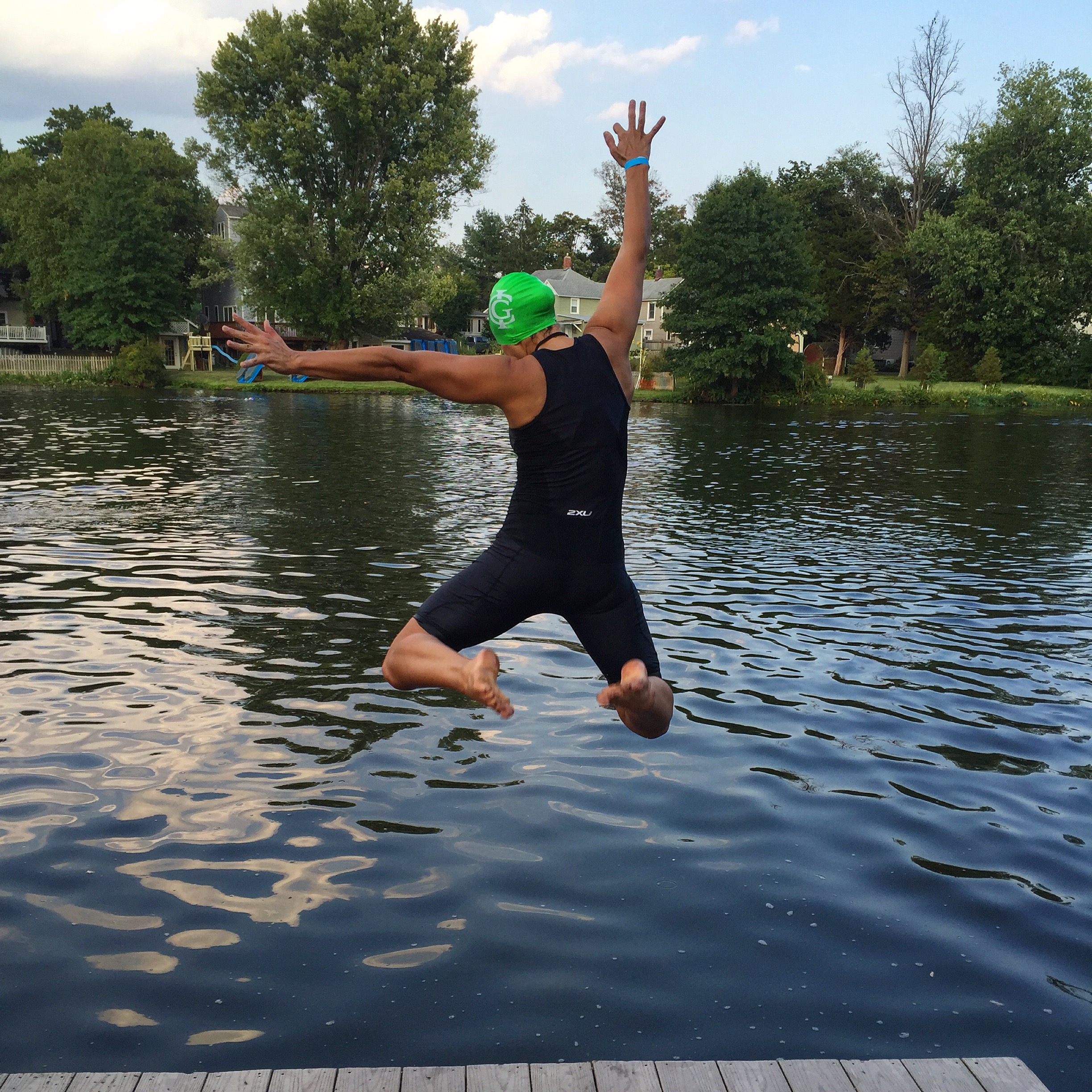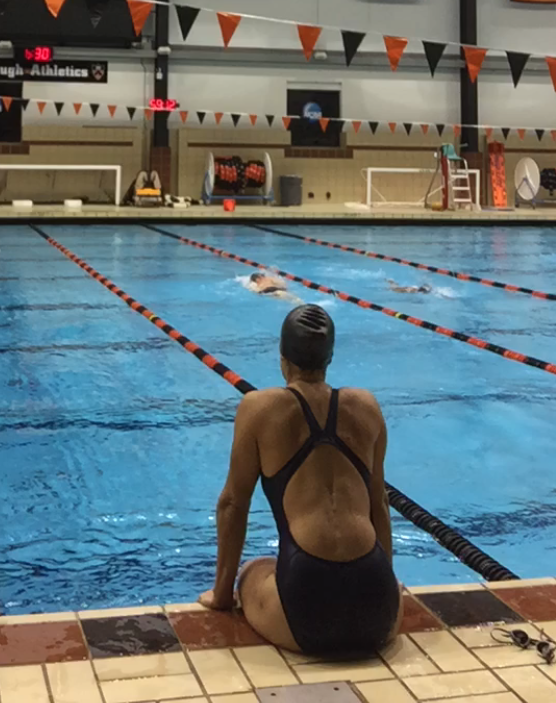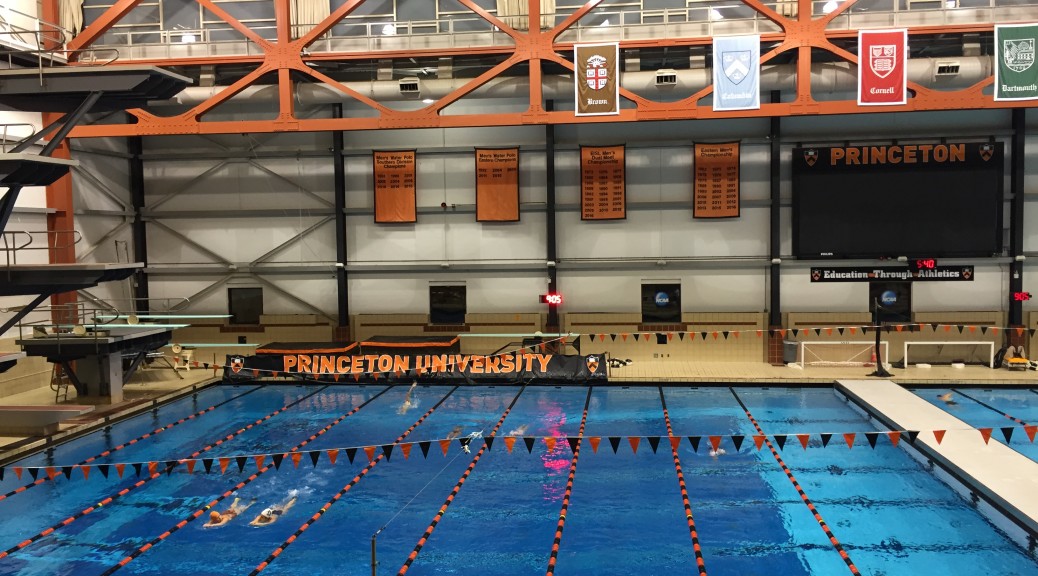 Last weekend I completed my 3rd triathlon of the summer. It was by far my best out of the three, but my swim was still not where I would like it to be. Considering I only started swimming three years ago, my swim wasn’t bad, but I still have a ways to go.
Last weekend I completed my 3rd triathlon of the summer. It was by far my best out of the three, but my swim was still not where I would like it to be. Considering I only started swimming three years ago, my swim wasn’t bad, but I still have a ways to go.
 This summer I swam 2-3 days per week at the pool, so I could work on increasing my stamina and distance. I really just tried to increase the amount of time I spent in the pool, my goal was to get more comfortable swimming. Additionally, I attended a few open water swims to help prepare me for my races and I am glad I did. Open water swims are VERY different than swimming in a pool. So if you are considering doing a triathlon, get in the open water, it’ll really help you become more mentally prepared for the race. If you know how to swim, theoretically you should be fine in the open water, but if you’re like me, something happens in my brain and I switch into a more stressed/panicked state of mind which makes swimming very challenging. Once I begin to panic, I have a hard time regulating my breath and become scared to put my face in the water. I end up completing the breast stroke or even the doggy paddle sometimes. I am working on getting myself in check and under control.
This summer I swam 2-3 days per week at the pool, so I could work on increasing my stamina and distance. I really just tried to increase the amount of time I spent in the pool, my goal was to get more comfortable swimming. Additionally, I attended a few open water swims to help prepare me for my races and I am glad I did. Open water swims are VERY different than swimming in a pool. So if you are considering doing a triathlon, get in the open water, it’ll really help you become more mentally prepared for the race. If you know how to swim, theoretically you should be fine in the open water, but if you’re like me, something happens in my brain and I switch into a more stressed/panicked state of mind which makes swimming very challenging. Once I begin to panic, I have a hard time regulating my breath and become scared to put my face in the water. I end up completing the breast stroke or even the doggy paddle sometimes. I am working on getting myself in check and under control.
 I’ve spent the last week reflecting on my training and decided that I was going to set a new goal for myself: complete a half ironman next summer. A half ironman consists of a 1.2 mile swim, 56 mile bike, and a 13.1 mile run. I feel pretty confident with the bike and run, but am a little nervous about the swim. So to pull this off, I need to work on becoming less stressed during the swim, so I can make it out of the water alive and in a timely fashion. To prepare, I have decided to join the masters swim program at Princeton University. I started this week. I met with the coach, had him critique my swimming, give me feedback, show me drills, and received a few workouts to try. Already, I am feeling better and a little more confident, so I am super pumped to see what I’ll be capable of a few months from now. I hope that the more I can get comfortable in the pool and work on refining my stroke, the less of a problem finishing the swim portion of the race will be!
I’ve spent the last week reflecting on my training and decided that I was going to set a new goal for myself: complete a half ironman next summer. A half ironman consists of a 1.2 mile swim, 56 mile bike, and a 13.1 mile run. I feel pretty confident with the bike and run, but am a little nervous about the swim. So to pull this off, I need to work on becoming less stressed during the swim, so I can make it out of the water alive and in a timely fashion. To prepare, I have decided to join the masters swim program at Princeton University. I started this week. I met with the coach, had him critique my swimming, give me feedback, show me drills, and received a few workouts to try. Already, I am feeling better and a little more confident, so I am super pumped to see what I’ll be capable of a few months from now. I hope that the more I can get comfortable in the pool and work on refining my stroke, the less of a problem finishing the swim portion of the race will be!
 This week I have decided to dedicate my blog to all the newbie swimmers. Here are a few helpful tips to get you started. Maybe you’ll consider a triathlon or join me in a half ironman next year 😉
This week I have decided to dedicate my blog to all the newbie swimmers. Here are a few helpful tips to get you started. Maybe you’ll consider a triathlon or join me in a half ironman next year 😉
- Begin to research gyms or clubs in the area with pools. Some may offer drop-ins; or try your local YMCA, most offer aquatic programs that can help you get started. As you get more comfortable, see who offers a Masters swim program and check out places that offer open water swims.
- Develop a feel for the water and start to get used to the idea of putting your face in the water. When swimming freestyle, it is important to be able to exhale freely into the water. Most people instinctively hold their breath when their face is in the water. This will make the stroke much tougher. When you are swimming freestyle, all exhalation should be into the water, so when you turn your head to breathe, you only need to inhale. Holding your breath adds to feelings of anxiety and makes you more stressed. Instead, exhaling into the water will help relax you… just like breathing techniques in yoga 😉
- Choose a good pair of goggles- make sure they fit, don’t let in water, that they’re comfy (don’t chafe over the nose or apply too much pressure on your eye sockets), and that they don’t fog up.
- The stroke you should mainly work on is freestyle, especially if you are racing. It’s ok to work on others, but freestyle is generally the fastest stroke and allows you to train for extended periods of time without your heart rate getting too high. I’ve even found it helpful to watch a few youtube videos on freestyle in order to help me better understand the stroke and proper technique.
- When swimming a lot, it can be easy to become fatigued. To hold off on some fatigue, try doing some kicking drills, stroke drills (i.e. switch between using your arms or legs more) or minimize energy used by controlling your stroke me (i.e. slow down & take longer strokes).

